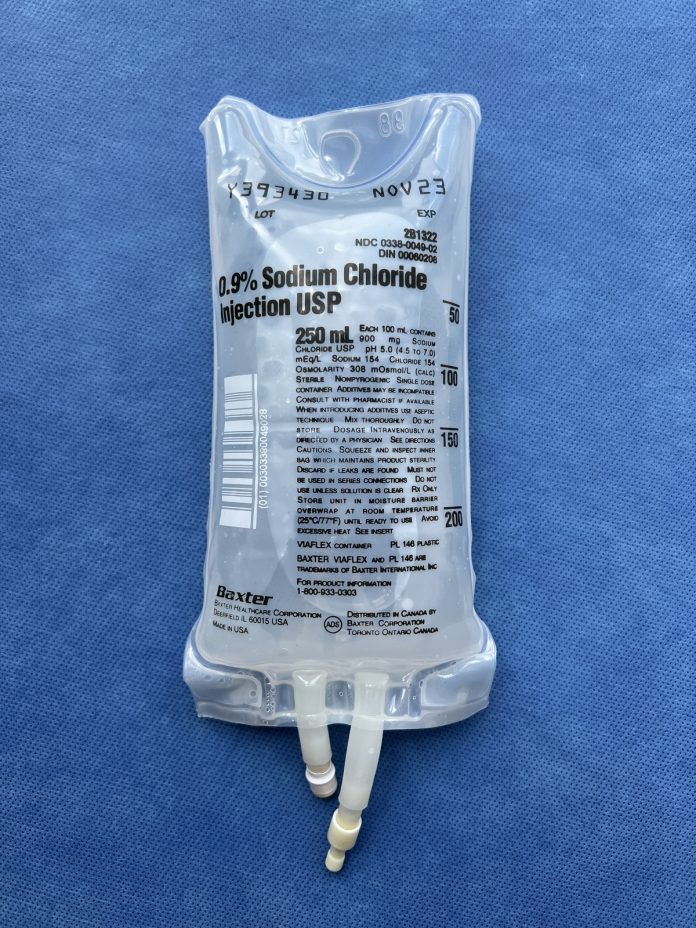Indiana Hospitals Conserving Resources Amid National IV Fluid Shortage
Emergency care and urgent surgeries remain unaffected;
Some non-emergent procedures may be rescheduled to preserve supplies
Oct. 21, 2024 (INDIANAPOLIS) — Indiana hospitals are closely monitoring the ongoing national shortage of IV fluids that has impacted hospitals and health care providers across the country. While hospitals are experiencing varying degrees of impact related to the shortage, recent delays in shipments from third party vendors have forced some hospitals to reassess their stock levels and prioritize their current supply for patients in critical need.
“Despite Baxter’s return to 60% production, and the incoming shipments from international suppliers, it could take weeks until some hospitals begin receiving their allocation of IV fluids,” said Blake Dye, interim president of IHA.
Indiana hospitals have implemented comprehensive conservation plans, which include reviewing and optimizing fluid use for each patient, exploring alternative therapies, and prioritizing the available supply for critical care.
While hospitals are working to ensure continued care for Hoosier patients, some are having to reschedule elective and non-emergent procedures as part of their efforts to preserve supplies. In these cases, patients will be notified by their provider to reschedule their care.
Emergency care and urgent surgeries remain unaffected.
“We’re certainly not alone in this predicament as this is a nationwide shortage impacting every state,” said Dye. “Hoosiers should feel confident that Indiana’s hospitals are managing through the current situation, taking proactive measures that are aligned with clinical best practices, and are working diligently to minimize the impact on patient care.”
IHA continues to work closely with its 174 member hospitals, the Indiana Department of Health (IDOH), and the American Hospital Association, who is in frequent discussions with officials from Baxter, their distributors, and the federal administration to assess current supply levels and convey the impact of the disruption nationwide.
“We appreciate the way that Indiana hospitals are minimizing the impact this national shortage is having on patient care,” said State Health Commissioner Lindsay M. Weaver, M.D., FACEP. “The Indiana Department of Health is in contact with Indiana hospitals and remains dedicated to working with our state and federal partners until the situation is resolved.”





